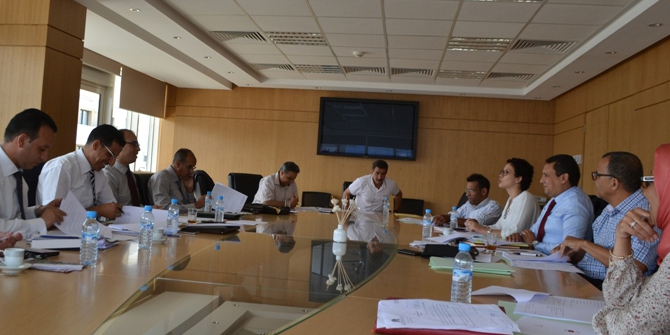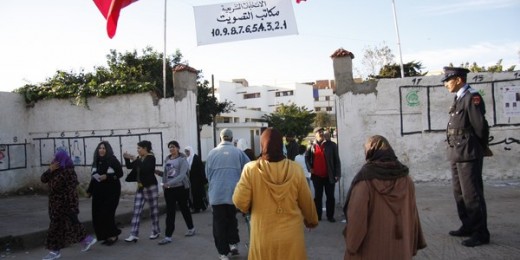The Special Commission for the Accreditation of Election Observers held a meeting at the National Human Rights Council’s office in Rabat on Monday the 8th of June 2015. This was the first meeting convened by the Commission in preparation for the independent and neutral observation of elections due in 2015.
The Commission updated the documents needed for the accreditation and the observation of the 2015 elections, mainly its by-laws, the accreditation application form, the observation charter (which includes the fundamental principles and rules for the observation), the draft call for applications, and the observer’s card and badges). The Commission decided over the observation procedure and set the date and deadline for the accreditation applications.
The 2015 observation operation will concern the elections of the Councils of the regions and the municipalities, due on the 4th of September 2015; the elections of the prefectural and provincial councils, due on the 17th of September 2015; and the elections of the House of Councillors, due on the 2nd of October 2015.
Under Law # 30-11, laying down the terms and conditions of independent and neutral election observation, a special commission for the accreditation of election observers is established within the National Human Rights Council (CNDH). The commission is mandated to receive, review and decide on the accreditation applications. It issues special cards and badges to accredited observers and drafts the observer’s charter, a document laying down the principles and fundamental rules that every accredited observer must respect.
Chaired by CNDH Chairman, or someone else acting on his behalf, the Special Commission for the Accreditation of Election Observers include the following members:
- Four members representing the Ministry of Justice, the Ministry of Interior, the Ministry of Foreign Affairs and Cooperation and the Ministry of Communication;
- A representative of the Délégation interministérielle aux droits de l’Homme(inter-ministerial department for human rights);
- A representative of the National Authority for Integrity and Prevention and Fight against Corruption;
- Five representatives of civil society associations acting as members of the National Human Rights Council. The names of these representatives are proposed to the Chairman of the Commission by the associations concerned.
The secretariat of the commission is managed through the Secretariat General of the National Human Rights Council.




